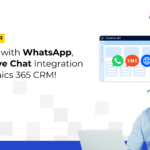If you’re an ambitious individual who wants to go far in their career, there’s no better place than the Salesforce ecosystem. The sheer demand for Salesforce professionals, mixed with the growth of the ecosystem and the increasing number of niche roles, is creating the ‘perfect storm’ for career growth.
In this post, I’ll talk about the variety of roles available in the ecosystem and the types of companies you can join, along with the most common career paths. The infographic below will guide you through the different Salesforce paths you can take.
Career Path Infographic
The following infographic has been created to help you navigate the vast landscape of Salesforce roles available at different types of companies within the ecosystem.
This includes roles at end users that use Salesforce, consultancies that implement Salesforce, AppExchange companies (or ISVs) that create apps for Salesforce, and of course, Salesforce themselves.
Whilst this infographic is meant to be as comprehensive as possible, it does not represent an exhaustive list of all possible career path options – within reason, you can choose any route you like!
In the following sections, we will dissect the specific roles and the different types of companies, as well as the reasons why you might choose to move between them.

Salesforce End Users
End users make up the largest segment of any company in this post. Salesforce had over 150,000 customers in 2020, and this number has likely grown significantly over the past two years.
These are the companies that actually buy and use Salesforce within their business – think of companies like Coca-Cola, Aston Martin, Adidas, and F1. Whilst you will likely recognize these names as they are large, globally recognized organizations, you will also find there are smaller Salesforce customers using fewer than ten licenses.
An end user’s requirements for Salesforce professionals will come down to the number of licenses they are using and the products they have purchased, alongside the complexity of their Salesforce org. Let’s take a look at some of the roles available…

Entry-Level Roles
If you’re looking to start your Salesforce career at an end user, there are plenty of great roles available:
Salesforce Admin: It’s very common for Salesforce professionals to start their career as an admin at an end user. Once you’ve landed your certification, an entry level or junior admin role at an end user is easily achievable, and it can be great to apply your theoretical knowledge at an actual company.
Sales Ops Exec: At larger companies, you may have a sales operations executive role sitting alongside an admin. This role would be focusing on improving the experience of sales users at the company, which may commonly include some Salesforce Admin responsibilities.
Salesforce Developer: You will often find developers working at end users that have a slightly more complex Salesforce org, utilizing custom code and integrations to extend the power of the platform. To land a job as an entry-level Salesforce Developer, you will need some previous experience with coding.
Marketing Executive: If you are looking to land a role as a marketing-focussed Salesforce professional, then a marketing exec role could be perfect. These will often work with the core Salesforce marketing tools such as Marketing Cloud or Pardot (Marketing Cloud Account Engagement).
Mid-Level Roles
As you progress up the ladder, more specialized roles will become available to you, allowing you to focus on your passions, skills, and interests.
Some of the most common mid-level roles at end users will be the CRM Manager and Product Owner. These roles have overlapping but separate responsibilities. Ultimately, it means owning the Salesforce platform internally.
At larger companies, you may find Solution Architects. These roles are focussed on complex multi-org implementations, ensuring that the products and features implemented are meeting requirements and using best practices.
Senior-Level Roles
Senior and Director-level Salesforce roles at end users are interesting, as these companies aren’t exclusively focussed on Salesforce; it’s not common to find dedicated senior Salesforce roles, unless you are a large customer of Salesforce.
For example, if you work as a CRM Manager for Salesforce and are looking for a promotion, you could move up to an Operations Director role to look after operations across the entire business. Similarly, you could move over to a Technical Director role, to oversee internal IT and multiple other IT systems.
At much larger Salesforce users with say hundreds of even thousands of Salesforce licenses, it won’t be uncommon to find dedicated VP or Director-level roles where you are exclusively responsible for Salesforce, with a large team reporting to you.
Why would you join an end user?
End users are probably the most common way for Salesforce professionals to start their careers once they are certified. If you are joining an end user with relatively a low license count and a low complexity org, this will be well suited to your skill level.
They are also great if you want to double down on product and industry knowledge, as you will be working with one customer, as opposed to a Salesforce Consultant who will be working for many.
For more senior Salesforce professionals, moving to an end user from another type of company is a great way to slot into a senior role, lead a team, and focus your knowledge.
Why might you leave an end user?
Once Salesforce Admins have a few years of experience under their belt, it’s common to look further afield for other opportunities.
This might be because they are looking to gain experience in different products and industries e.g. by moving to a Salesforce consultancy, or moving to a larger end user to scale their knowledge, and perhaps lead a team.
Salesforce Consultancies
Consultancies are the backbone of the Salesforce industry; whenever Salesforce sells a new product to a customer, they will need a Salesforce consultancy to configure it to the customer’s requirements.
Consultancies range from global behemoths like Accenture, Deloitte, and IBM, to local partners with dozens of employees, all the way down to freelancers.
Roles at consultancies are often seen as a way to massively upskill your Salesforce knowledge. You will be working on complex projects, and be surrounded by more senior professionals you can learn a lot from.
Let’s dive into the huge variety of Salesforce roles you’ll find at a consultancy…

Entry-Level Roles
Salesforce consultancies will often employ Salesforce Admins looking to upskill in different areas, as well as recent graduates and entry-level candidates who have proven themselves via certifications (or similar).
It’s important to also point out that these roles (such as consultants) aren’t necessarily “entry level”. However, consultancies will often employ “entry-level consultants” with a view to them being promoted after they’ve got some experience under their belt.
Salesforce Consultant: The most common role at a Salesforce consultancy, these are the people tasked with configuring Salesforce and working with the customer to realize their goals within the Salesforce platform.
Business Analyst: A role usually found at larger consultancies (as smaller consultancies may combine the consultant and BA roles). The Business Analyst is exclusively tasked with requirements gathering, and improving business processes through Salesforce solutions. This is a great role for an existing business analyst that has worked with other platforms.
Developer: Similar to an end user, these professionals are responsible for extending Salesforce with Apex code, custom Lightning pages, and integrations. A background in coding is usually required to land an entry-level developer job.
Mid-Level Roles
Once you have a few years of experience under your belt on some of the core roles available in a consultancy, it will be time to specialize.
The beauty of consultancies is that you can choose many different disciplines depending on your passion, interests, and skill level. For example…
If you love your role as a Salesforce Consultant in the technical elements of the Salesforce platform, you may decide to start upskilling to become a Salesforce Developer and make a lateral move. Or if you want to stay on the declarative side, you could become a Solution Architect. Developers looking to level up can also move to a Technical Consultant role, which is more of a customer-facing role, whilst leading technical solutions.
If you enjoy the commercial side of projects e.g. working with the sales team to sell and close deals, the Solution Engineer role is very viable. Here you will be demoing Salesforce and helping the sales process with technical questions. You will also land yourself a nice bit of commission!
Finally, Project Manager is another core role at Salesforce consultancies, and consultants who wish to move into this field are perfectly set up for it.
Senior-Level Roles
If you are looking to accelerate your career up to a director-level position, then a Salesforce consultancy is the perfect place, as all senior positions will require a lot of Salesforce experience.
If you are coming from the Salesforce Consultant track, then you have a variety of options available. Practice Leads will typically have expert-level knowledge of a particular product (such as Sales or Service Cloud), supporting implementations and the sales process for that product.
You also have Programme Managers, who can be seen as a senior Project Manager, typically overseeing multiple large projects at once.
Finally, Delivery Directors will be overseeing all projects within the consultancy, often acting as an escalation point and ensuring the operation team are delivering projects on time to a good standard.
Why would you join a consultancy?
Consultancies are a fantastic place to upskill your knowledge by working on complex Salesforce implementations, as well as learning from your colleagues who will have many years of experience.
Consultancies are a fast-paced environment, where you could be working on multiple projects at the same time, so there is no better place to accelerate your career trajectory.
Why might you leave a consultancy?
Whilst consultancies are a great place to learn, they can be stressful. You may be working across multiple projects and customers at the same time, whilst trying to pass certifications and ensure you are meeting deadlines.
As you progress your career, you may also want to double down on a specific niche or move to a different type of company. Luckily, after working at a consultancy, the world is your oyster…
Salesforce ISVs
The Salesforce ISV market, or AppExchange companies, develop third-party applications for the Salesforce platform.
In a similar fashion to consultancies, ISVs come in various sizes, from very small companies of less than 10 employees, to huge 1000+ employee companies such as Conga and OwnBackup.
However, the roles you see at ISVs differ greatly from consultancies, as these companies develop SaaS applications and don’t (primarily) deliver professional services in the form of projects. This opens up unique career opportunities for roles such as technical support, customer success, and product management.

Entry-Level Roles
Some roles at Salesforce ISVs do not require deep technical platform knowledge like end users and consultancies, which means it could be the perfect place to start your career.
It’s not uncommon to find professionals joining ISVs that cross-train from completely different industries, and are onboarded simultaneously on the specific ISV product and Salesforce.
Technical Support: All ISVs will require a technical support team of some kind. This role will involve helping customers who need assistance with the product, spot bugs, or training. If you have previous experience of working in customer support, then this could be a great role for you to enter the ecosystem.
Sales Operations: Sales ops is an important role in SaaS companies, and can sometimes have overlaps with the Salesforce Admin role, as the vast majority of ISVs will be using Salesforce as their CRM.
Business Development: Many sales professionals will start their career in a “biz dev” role. This involves calling and emailing prospective customers that seem like a good fit for the ISV’s product. Biz dev roles do not usually require much experience. It’s important to note this is not a technical Salesforce role, but it could help you to get your foot in the door.
Mid-Level Roles
Salesforce ISVs have a very diverse set of roles compared to other types of companies in the ecosystem, which really opens up your career trajectory. Once you are familiar with the ISV’s product and have built up some core experience, you can move around how you see fit.
If you have developed some technical skills whilst working at the ISV, there are plenty of roles you could move to. Firstly, Solution Engineers are a core role at most ISVs, supporting the technical side of sales, answering questions, demoing, and ultimately helping to close the deal.
Customer Success is another important function – this is a great move from technical support, where you will be helping customers get the most out of the product from a strategic perspective, often supporting the ISVs largest customers.
Product Management is also a great move and it is unique to SaaS product companies. In this role you will be helping to shape the future of the ISV’s product – gathering feedback from customers, implementing new features, and defining the future roadmap.
If you are commercially savvy and want to look at earning some big bucks, then the Sales route of Account Executive or Alliance Managers are very lucrative roles. These roles will have a base salary with an attractive commission package on top for hitting targets.
I wouldn’t say that it’s common for Salesforce professionals to move from technical roles into sales roles, but from personal experience this can be a great move. If you understand the benefits of the product extremely well, it can often be very easy to sell this value to new customers.
Senior-Level Roles
Once you have earned your stripes, a variety of director level roles open up at ISVs. We have included a selection of these in our infographic, however, depending on the size of the ISV, there could be many others available.
Technical roles would include Product Director and Customer Success Manager, which build on the responsibilities of the roles previously mentioned, as well as Marketing and Sales Director roles to take care of the respective departments within an ISV.
In addition to these roles, you will also find Operations Directors and Technical Directors (or CTOs) that will own the development of building the ISV product.
Why would you join an ISV?
ISVs are SaaS companies, and SaaS companies are ‘big business’. They can grow very fast, have a diverse set of roles, and can be a fantastic place to accelerate your career growth.
They are also great places to specialize. You might be working at an end user or Salesforce consultancy, and want to gain extra niche knowledge in an area such as contract management or DevOps.
Why might you leave an ISV?
Although some Salesforce professionals might want to specialize in a specific niche, it may be that you want to broaden your horizons by working on the core Salesforce platform.
It’s very unlikely you will be able to work with a diverse set of Salesforce products at an ISV, so depending on where you want your career to go, another type of company could be a better option.
Salesforce
Now we arrive at our final destination, Salesforce themselves – or the “mothership” as they are affectionately named.
For a lot of Salesforce professionals, Salesforce is the end goal. They are often recognized as one of the best companies to work for across the globe, and can offer great compensation packages and amazing career growth opportunities.
Salesforce is an entirely different beast compared to the types of companies we have covered so far, with over 70,000 employees and 26 offices in the US alone.
The career paths at Salesforce are mostly standard. Although the option is there to switch between career paths, most professionals will opt for a certain role, double down on this niche, and rise in the ranks.
Let’s take a look at four core career paths that sit inside Salesforce…

Sales
One of the largest segments of roles available in Salesforce is in their sales team.
Salesforce’s army of BDRs and AEs will be working with new and existing customers to help them accelerate their business growth using Salesforce’s suite of tools. Sales users typically have a base salary but can achieve double this by hitting their sales targets.
Typically, if you are just beginning your sales career, you will start out as a Sales/Business Development Representative, which will involve responding to incoming enquiries through Salesforce’s website and reaching out to new customers by phone or email.
Once you’ve built up the core sales skills, it’s time to become an Account Executive. AEs are the people responsible for looking after Salesforce’s existing customers, and actually closing the deals.
Once you’re an AE, you will typically be looking to climb the internal ladder at Salesforce, looking after larger and larger customers. This comes with increased responsibility and targets, but also the ability to make a lot more money.
If you are looking to move from an ISV or consultancy firm, you can typically slot into the Salesforce Sales team based on your prior experience.
Solution Engineering
Working as a Solution Engineer at Salesforce is probably the most common type of move for technical Salesforce professionals.
Solution Engineers need a strong grasp of the Salesforce platform, its practical use cases, and the value it provides businesses. They also need to be commercially savvy when it comes to closing a deal.
If you work as a Solution Engineer, Business Analyst, or Salesforce Consultant at a consultancy (or similar roles at an ISV), it’s likely you already have a lot of these skills.
Solution Engineers at Salesforce will be supporting Account Executives with the technical side of selling a deal, including answering technical questions, and setting up demos to show the client.
Solution Engineers’ compensation will typically be made up of a base salary, with commission on top for hitting targets. The career path will also be looking to work with larger clients, taking on more responsibility, or perhaps managing a team of SEs.
Customer Success
Customer success in Salesforce is typically one of the most technical departments. CS will be partnering with Salesforce’s existing customers to ensure they are getting maximum value out of their suite of products.
Most roles within CS such as Program Architect, Technical Architect, Solution Architect, and Success Manager, have similar but separate responsibilities. The similarities? They are all trusted advisors for Salesforce’s largest customers, ensuring they are driving increased value, retention, and customer satisfaction.
These roles require a very high degree of knowledge in terms of the Salesforce platform, as well the ability to solve problems with creative solutions. As Salesforce puts it: “Our Customer Success team partners with our customers to solve the unsolvable, and reach new heights together.”
Typically, you will be well positioned for these roles if you have come from a larger Salesforce partner.
Managers
To mentor, support, and keep their team on track, Salesforce employs a large number of managers across the company. You will find these managers across all types of functions, managing teams of account executives, solution engineers, and – at higher levels – teams of other managers.
Typically, most professionals in Salesforce will either opt to rise the ranks as an AE or SE etc. or they will switch over to become a manager – the two skill sets are related, but very different.
Why would you join Salesforce?
Salesforce has a fantastic reputation on the global stage as one of the best companies to work for, winning awards every year. These awards bring in a combination of compensation, culture, and benefits.
In addition to being one of the best places to work, after being at Salesforce for a few years, you will be a highly desirable professional in the Salesforce ecosystem. ISVs and consultancies place a huge emphasis on their relationship with Salesforce to bring them success. So, if you’ve worked at Salesforce, you can help support this relationship.
Why might you leave Salesforce?
No surprises here, but Salesforce is by far, the largest company in the Salesforce ecosystem. This can come with its own disadvantages, such as being a ‘small fish in a big pond’ and lots of processes to work through. It could also be hard to progress up the career ladder due to other factors.
This may lead people to move to ISVs or consultancies where they will be highly desired, and can leapfrog into more senior positions, potentially earning more than they were at Salesforce.
Summary
This mega-post aims to give you a glimpse into the career paths you can find in the ecosystem across the main types of Salesforce companies.
There is huge potential for all Salesforce professionals to accelerate their career in Salesforce, mainly due to the growth of the ecosystem and the amount of opportunities available. But it’s a good idea to think about where you want to go in the future, as certain career paths can require experience at a certain type of company.
I hope this was helpful – let me know if you’ve got any comments or questions in the section below!











